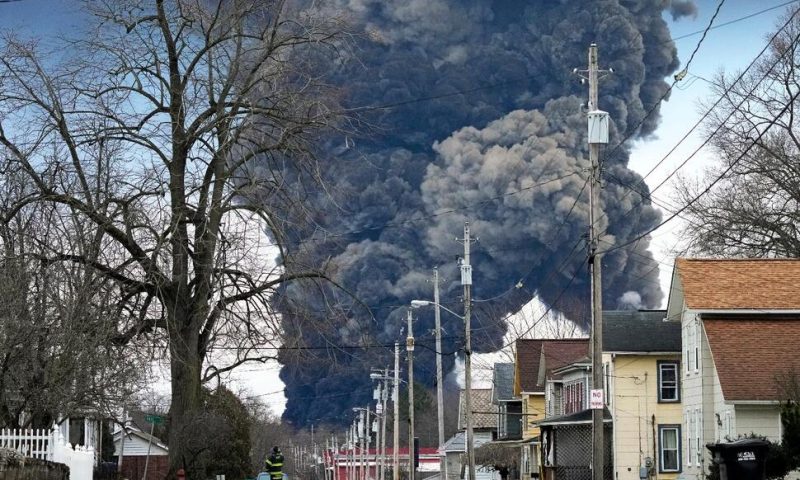Days before the National Transportation Safety Board is set to explain why first responders were wrong to blow open five tank cars and burn the toxic chemical inside after the East Palestine derailment, Norfolk Southern said Friday it plans to lead an industrywide effort to improve the way those decisions are made
Days before the National Transportation Safety Board is set to explain why first responders were wrong to blow open five tank cars and burn the toxic chemical inside after the East Palestine derailment, Norfolk Southern said Friday it plans to lead an industrywide effort to improve the way those decisions are made.
The railroad said it promised to lead this effort to learn from the aftermath of its disastrous derailment as part of its settlement with the federal government. The NTSB will hold a hearing Tuesday to discuss what caused the Feb. 3, 2023 derailment and how to prevent similar derailments in the future.
More than three dozen railcars came off the tracks that night and piled up in a mangled mess of steel with 11 tank cars breaking open and spilling their hazardous cargo that then caught fire. Three days later, officials in charge of the response decided they had to vent and burn the five vinyl chloride tank cars to prevent one of them from exploding.
That action created massive fireballs above the train and sent a thick plume of black smoke over the town on the Ohio-Pennsylvania border. Half the town had to evacuate for days and residents are still worrying about the potential health effects from it.
NTSB Chair Jennifer Homendy told Congress earlier this year that didn’t have to happen. She said experts from the company that made the vinyl chloride, OxyVinyls, were certain that the feared chemical reaction that could have caused those tank cars to explode wasn’t happening.
But Ohio’s governor, first responders and the hazardous materials experts who made that decision have said the information they had that day made them believe an explosion was likely imminent, making the vent and burn their best option even though it could unleash cancer-causing dioxins on the area.
Drew McCarty, president of the Specialized Professional Services contractor the railroad hired to help first responders deal with the hazardous chemicals on the train, said in a letter to the NTSB this spring that The Associated Press obtained that the OxyVinyls experts on scene “expressed disagreement and surprise with that Oxy statement from Dallas” that polymerization wasn’t happening inside the tank cars. McCarty said that “ultimately, Oxy’s input to us was conflicting.”
Over the past year, that chemical manufacturer has declined to comment publicly on the situation that is already the subject of lawsuits beyond what its experts testified to last spring.
Norfolk Southern CEO Alan Shaw said he hopes the industry can improve the way these decisions — which are a last resort — are made to improve rail safety.
“When a vent and burn procedure is being considered, the health and safety of surrounding communities and emergency responders is top priority,” Shaw said.
Announcing this new workgroup Friday may put Norfolk Southern ahead of one of the recommendations the NTSB will make Tuesday.

